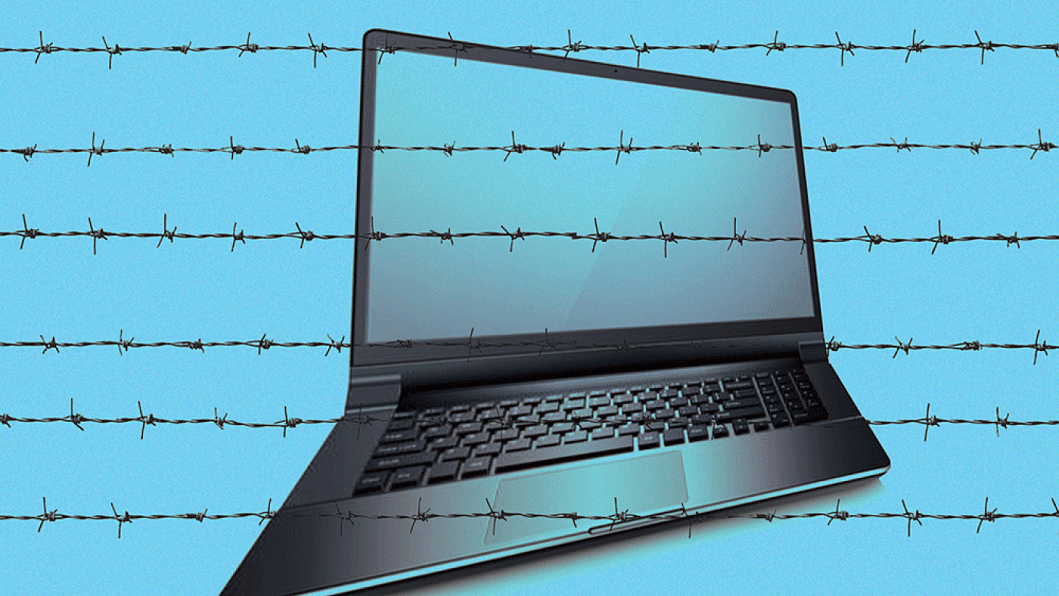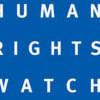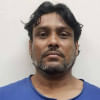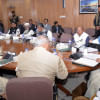The Chilling Effect of Section 57

Despite repeated assurances that Section 57 of the Information and Communication Technology (ICT) Act will be removed, the provision has not been scrapped and is instead now going to be incorporated into the Digital Security Act, 2016. It seems that no one is immune to the effects of Section 57 which is being increasingly misused to curtail freedom of speech.
More than two dozen editors, journalists, teachers, social media users and free thinkers have already been sued on charges of defamation under Section 57 since March this year. Some of them were arrested by police without delay after filing of the cases and put behind bars. They had to struggle to get bail.
The nature of litigants and litigations is intriguing. A Dhaka University teacher filed a defamation case against his colleague in the same department. A senior assistant district judge sued a journalist in Manikganj. Officials of the chief metropolitan magistrate court in Khulna sued an editor and a reporter of a local daily. A private company sued the executive editor of an online news portal in Dhaka. Some journalists and social media users also face defamation cases for either sharing on Facebook news reports published in newspapers or sharing others' Facebook posts. Followers of MPs and political leaders are also among the list of litigants who have sued journalists for "defaming" them in their news reports about their activities.
This has been going on for the last couple of years. Take the example of the arrest of journalist Probir Sikdar in August 2015 which sparked widespread outrage. He was placed on a three-day remand in connection with a case filed under the provision for "tarnishing the image" of LGRD Minister Khandkar Mosharraf Hossain in a Facebook post in which Sikdar said his life was under threat and that the minister, businessman Moosa bin Shamser and condemned fugitive war criminal Abul Kalam Azad would be responsible if he were killed.
Section 57(1), ICT Act, 2006
"If any person deliberately publishes or transmits or causes to be published or transmitted in the website or in any other electronic form any material which is false and obscene and if anyone sees, hears or reads it having regard to all relevant circumstances, its effect is such as to influence the reader to become dishonest or corrupt, or causes to deteriorate or creates possibility to deteriorate law and order, prejudice the image of the state or person or causes to hurt or may hurt religious belief or instigate against any person or organisation, then this activity will be regarded as an offence."
Probir Sikdar, editor of Bangla daily Bangla 71 and online news portal 71news.com, was picked up by detectives in the evening of August 16 from his office in the capital after Faridpur local AL leader Swapan Kumar Paul filed the case following the Facebook post. He was freed on bail by a Faridpur court amid calls from different platforms of journalists, rights activists and socio-cultural organisations home and abroad.
But despite the outcry the usage of Section 57 as a weapon to muzzle the voices of free thinkers and journalists could not be stemmed.
Take one more example. On July 3, Nazmul Hossain, a senior reporter of Jamuna Television, was sued for his June 23 Facebook post. The plaintiff, Hazrat Ali Belal, a lawyer of Dinajpur Bar Association, also accused three others for sharing the post.
It seems that everyone is free to file a defamation case against anyone under Section 57 for writing, sharing or making any critical comment through digital media. Over 700 cases have been filed under this section since 2013 when the provision was amended to include stringent punishment.
Now, one may be punished for up to 14 years and at least seven years' imprisonment for committing an offence. The amendment also empowered police to make an arrest without a warrant.
The prevailing atmosphere of fear compels one to think twice before sharing or making critical comments about social and political issues, political leaders and influential people on social media. This fear that is creeping in inhibits people from exercising their natural and legal rights to freedom of expression in the digital world.
Curtailing dissenting voices
The misuse of such a cyber law is not just limited to Bangladesh. Section 57 of our ICT Act, not too long ago, had its counterpart in India in the Information Technology Act 2000.
Section 66A of the IT Act prohibited the sending of information of a "grossly offensive" or "menacing" nature through computers and communication devices. This section had widely been misused by police in various states to arrest innocent persons for posting critical comments about social and political issues and political leaders on social networking sites, according to a Times of India report on March 24, 2015.
According to a Hindustan Times report published on March 24, 2015, most of these arrests were for posting controversial remarks or photos, while some were for sharing, commenting on or liking such posts. In Jammu and Kashmir, a person was arrested merely for being tagged in a post on social media!
But the arrests of two college girls in Mumbai triggered widespread outrage. On November 18, 2012 one of the girls had made a Facebook post lamenting the shutdown which was imposed after the death of Shiv Sena supremo Bal Thackeray a day earlier. Shiv Sainiks then vandalised her uncle's hospital. Her friend, who was arrested along with her, had clicked "like" on the Facebook post.
Shocked by the arrests, Shreya Singhal, a 24-year-old second-year student of law in Delhi University, decided to challenge the legality of the draconian provision that gave police arbitrary powers to make arrests. She filed a petition with the Supreme Court in the same month challenging its legality and won the battle.
Some cases filed under Section 57 (March 1 to July 31)
March 1: Rajshahi University correspondent of Dainik Alokito Bangladesh Mostafij Mishu was sued for his report on the formation of RU Chhatra League committee. Minarul Islam, a former leader of the BCL unit, filed the case.
March 25: Morsalin Babla, editor and publisher of Juger Chinta in Narayanganj, saw a case filed against him by Sohel Ali, president of Fatullah thana Jubo League, over publishing of a report.
March 30: Journalist Hasibur Rahman Rizu sued Hasan Ali, Kushtia correspondent of Bangla Vision and bdnews24.com, and Aslam Ali, staff correspondent of local Bangla daily Darpan, allegedly for their derogatory posts on Facebook against him.
April 15: Ali Reza Ripon, brother of Narayanganj City Corporation Mayor Selina Hayat Ivy, filed a case against five local journalists for publishing reports that allegedly tarnished their image. The accused are Habibur Rahman Badal, editor and publisher of Dandy Barta; Raju Ahmed, editor of Narayanganjer Alo; its publisher Mobarak Hossain Kamal; Sifat Al Raman Linkon, head of news of narayanganjbarta24.com; and its executive editor Mahmud Hasan Kachi.
April 29: A private company filed a case against Ahmed Razu, executive editor of natunsomay.com. He was accused of publishing two reports that allegedly tarnished the image of the company.
May 16: Nipun Chandra Das, Dashmina upazila correspondent of the Asian Age, and Sanjoy Banerjee, upazila correspondent of the Dainik Janata, were sued. Sikder Golam Mostafa, secretary of Dashmina upazila Awami League in Patuakhali, filed the case following their reports on torture of a Hindu woman by a local gang who attempted to grab her land.
June 6: Brac University teacher and senior journalist Afsan Chowdhury was sued. Lt Gen (retd) Masud Uddin Chowdhury filed a defamation case due to one of Chowdhury's Facebook posts.
June 13: A case was filed against bdnews24.com staff reporter Golam Mujtaba Dhruba for his report published two days prior. The plaintiff was a senior assistant judge of Manikganj.
June 14: A case was filed against Kazi Motaher Rahman Babu, editor of local daily Somoyer Khobor in Khulna, and its former reporter Shohag Dewan. Two officials of the district's Chief Metropolitan Magistrate's Court accused them of publishing reports with misinformation.
July 3: Nazmul Hossain, a senior reporter of Jamuna Television, was sued for a Facebook post from June 23. The plaintiff, Hazrat Ali Belal, a lawyer of Dinajpur Bar Association, named three others for sharing the post.
July 6: Ajmol Haque Helal, senior reporter of daily Shokaler Khobor and former vice president of Dhaka Reporters' Unity, and Nurul Amin Rasel, a local from Mathbaria upazila of the district were sued over making comments on Facebook about a local lawmaker.
July 21: Imtiaz Mahmood, a Supreme Court lawyer, was sued by a trader named Shafiqul Islam. Islam accused Mahmood of "inciting communal violence" through his Facebook posts which Islam had found to be false.
July 31: Abdul Latif Morol, a local reporter of Daily Prabaha, was sued for criticising local MP Narayan Chandra Chanda for the quality of the livestock and poultry he distributed among the poor.
An attack on freedom of expression
During hearing of the case against Section 66A, the Indian government strongly defended this provision. It argued that the misuse of information technology, particularly social media sites, has been witnessed in the country in the recent past when emails were sent and messages posted on social media attached with morphed images of certain incidents, said a Times of India report on January 11, 2013.
There had been innumerable instances to disturb religious/inter-community harmony and faith by uploading, publishing and transmitting highly inflammatory and objectionable information in the form of texts, tweets, images, audio-videos and links, argued the government before the court.
However, the SC did not accept the government's arguments. According to the court, none of the grounds, which the state sought to invoke in defending the law—in this case, public order, defamation, incitement to an offence and decency or morality, each of which is included in Article 19(2) of the Constitution—could be justifiably applied. On March 24, 2015, the SC declared the provision unconstitutional and struck it down.
In the landmark verdict, the SC said the liberty of thought and expression is not merely an aspirational ideal. It is also "a cardinal value that is of paramount significance under our constitutional scheme." Such a provision of the law strikes the root of liberty and freedom of expression, the two cardinal pillars of democracy, it observed.
In Bangladesh, however, we seem to be moving in the opposite direction. In the face of severe criticism, the government has moved to remove Section 57 from the ICT Act 2006. But it decided to include a more stringent provision in the proposed digital security law in the name of imposing "reasonable restrictions" on freedom of speech, expression and freedom of the press. The government has argued to retain a provision like Section 57 claiming that it is needed to deal with cyber offences. Its arguments are very similar to those raised by the Indian government before the apex court.
This means free speech will continue to suffer from the effects generated by the cyber law in the coming days.
How law is used as a weapon to muzzle criticism
Apart from filing defamation cases under Section 57, a large number of defamation cases were filed against editors and journalists in recent years under the provisions of the Penal Code, 1860.
The nature of the cases and litigants shows how they have been using the defamation law to muzzle dissenting voices and criticism. Intriguingly, most of the litigants are legally not allowed to file cases because of the restriction imposed by Section 198 of the Code of Criminal Procedure, 1898.
Section 198 reads: "No Court shall take cognizance of an offence falling under Chapter XIX or Chapter XXI [ defamation] of the Penal Code or under sections 493 to 496 (both inclusive) of the same Code, except upon a complaint made by some person aggrieved by such offence."
Yet, they were allowed to file the cases by the magistrates who also took the cases into cognisance overlooking the legal provision. The cases have had severe repercussions for the freedom of press.
Let's look at another example in our neighbouring country to learn about the impact of such black laws. When Jayalalithaa was chief minister of Tamil Nadu she had set an appalling and unique record by using criminal defamation as a tool to suppress her critics.
Her government filed more than 213 defamation cases in five years since 2011 against political opponents and media houses for "derogatory statements" made against Jayalalithaa. Her policy was: criticism will neither be forgotten nor forgiven.
The Tamil Nadu government, either directly through her or indirectly through ministers or law officers, filed defamation cases against anyone daring to criticise the chief minister.
The fear of defamation has had the desired effect. A section of the media had to think twice before writing anything critical of her regime, knowing a "legal love letter" i.e. a defamation case, may be coming their way.
"You must face criticism if you are a public figure"
Some of the victims facing defamation cases filed by and on behalf of Jayalalithaa's government moved to the Supreme Court seeking remedy. Shocked by the slew of cases, the SC slammed the chief minister for misusing the defamation law to stifle dissent and criticism. "This is not how a healthy democracy functions. You must face criticism if you are a public figure," the court observed in August 2016 in a hearing of an appeal filed against the state government's defamation case.
The court clearly said defamation cannot be used as a political weapon or a way to counter-attack. It said that anyone who called a government "corrupt" or "unfit" cannot be slapped with a defamation case and threatened with prosecution. The Indian SC asked her to focus more on good governance and not to use the defamation law to throttle democracy.
Yet, Jayalalithaa, who died in December 2016, could not escape the long arm of the law despite her relentless efforts to muzzle criticism by abusing the defamation law.
The examples in India—widespread abuse of the cyber law by police, scrapping of the draconian provision by the apex court and usage of defamation cases as a tool to shut down criticism by Jayalalithaa's government—may offer some lessons for us.
What the Indian Supreme Court said about public figures facing criticism should be kept in mind before defamation cases are arbitrarily filed.
A free media is the symbol of free people and a vehicle of freedom of expression for all citizens and as such is an essential pillar of democracy. When the media is gagged by the abuse of defamation laws, it is akin to stifling the voices of the people.
Shakhawat Liton is special correspondent, The Daily Star.
E-mail: [email protected]










Comments